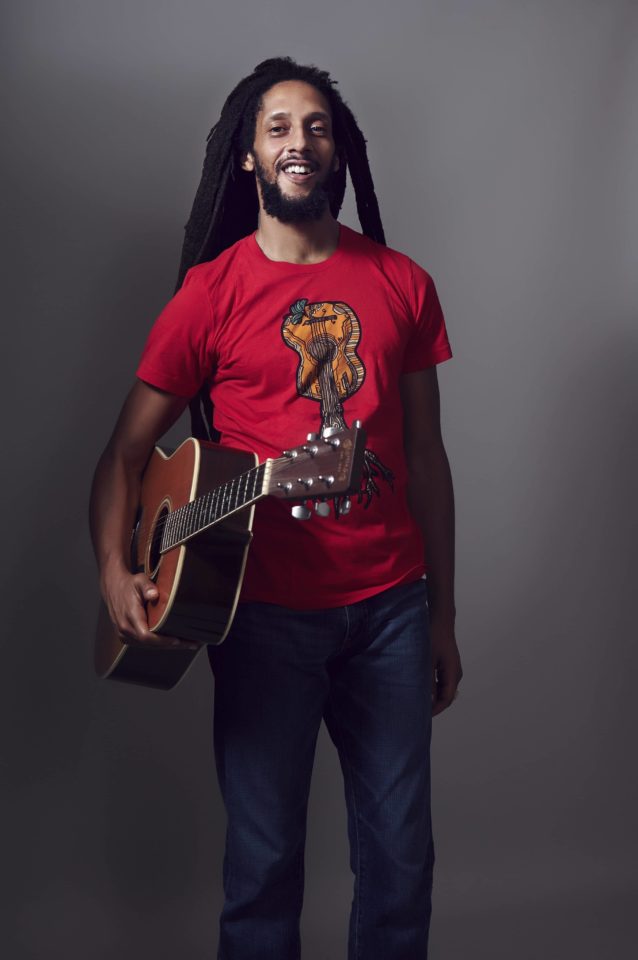Julian Marley’s legendary father, Bob Marley, is credited to bringing the Rastafarian culture and music to the world through lyrics instilled with political and theological messaging, based on ancient Christian texts. Once his music gained international recognition his raw interviews became teaching moments of Rastafari livity, teaching the principles of a balanced lifestyle, steeped in love, giving thanks daily, as a practice.
“I wake up every day and give thanks and praise before everything else,” he shared. “It’s a meditation. Sometimes I put on some good Ethiopian music—some orthodox music, and start the day out with spirituality before we take time for physicality.”
Physicality defined in the modern world, Julian explained, is the world of the iPhone, social media—Instagram, namely. If it’s a business call that’s different, but starting the day with a spiritual life, giving thanks, is part of livity.
“It’s good to make it a practice, then it becomes a habit, then it becomes you,” he added. “Everywhere we go, we give thanks for the day—a few moments of thanksgiving everyday. If we are driving, we say ‘yes, God, yes you see everything, but it’s nice to thank him. Then we play in the park, chat with friends, see the children.”
Raised in London, Livity in Jamaica
Born in British Jamaica, Julian was raised in London by his mother, Lucy Pounder, but learned of the Rasta beliefs during visits with his extended family in Jamaica.
“When I read the Bible as a kid I thought the history was only happening in England—it was the language, written in old English—and in my mind it took me far away from my roots in Jamaica. But when I went back to visit my brothers, I saw that everyone looked like …
Read More
Author: Sharon Letts / High Times









